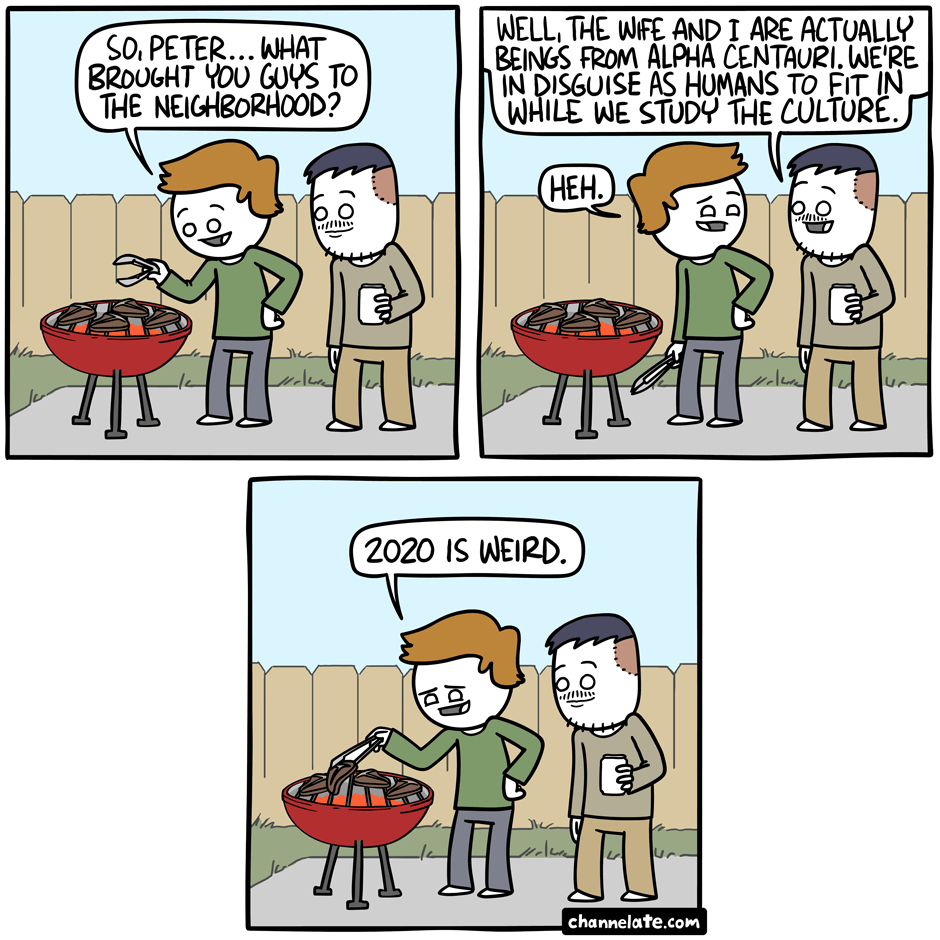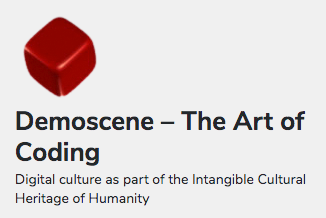— Nezua 🌊 (@nezua) June 14, 2020
Category: Internet & Culture
Category: Internet & Cloud. This brand new thing: Internet & Cloud. Even though the technology is around for way more than 30 years, it is a never drying source of news and discoveries. The new channel of communication created a entirely new culture and created new businesses, fueling innovation and creativity.
All those things that clearly relate to something ‘new media’, items and thoughts that would not have been possible without the internet, will go here.
-
Slack partners with Amazon

All of Amazon’s AWS employees will now use Slack The market for collaboration tool has been sparked by Slack a few years ago. It has been subject to heavy fights since. Microsoft Teams not only entered the market but overtook the early mover quickly. The fight escalated perceivably when Slack accused Microsoft of ripping off its ads in late 2019.
AWS and Slack recently announced a partnership, indicating how hot the market apparently still is. With these two heavyweights in the ring, expect some movement in the space.
Source: The Verge
-
The Day Democracy Died
“The Day Democracy Died”, as sung by the Founders and Framers of the Constitution of the United States of America.

The Day Democracy Died. He’s a famous ignoramous,
can’t tell truth from a lie,
and if he wins we’ll kiss our country goodbye,
Singin’ vote for anyone but this guy
Vote for anyone but this guy. -
Die Zerstörung des Vertrauens in die Presse
Rezo sieht sich die Vertrauenswürdigkeit der Presse an. Der Youtuber hat bereits vergangenes Jahr durch sein Video “Die Zerstörung der CDU” auf sich aufmerksam gemacht hat. Die Zerstörung des Vertrauens in die Presse heisst das neueste Werk. Es sollte das einzige Video sein, das ihr heute anschaut, wenn ihr bei dem schönen Wetter nicht lieber rausgeht.
“Es ist wieder Zeit für so ein Video” eröffnet Rezo, und beginnt damit einige der gerade wieder populär werdenden Verschwörungserzählungen aufzuzählen. Spätestens seit der Corona-Krise und den damit verbundenen Maßnahmen die uns ja immerhin alle betreffen haben einfache Antworten Hochkonjunktur. Dort behaupten vegane Fernsehköche und C-Prominente solchen Quatsch wie, dass es sich nur um Erfindungen von denen da oben geht oder dass Bill Gates die Menschheit mit Zwangsgeimpften Chips die Menschheit unterdrücken möchte.

Screenshot aus dem Rezo Video In dem Video “Die Zerstörung des Vertrauens in die Presse” geht Rezo allerdings nicht um die Zerstörung von irgendwas. Schon gar nicht um die Zerstörung von Verschwörungsmythen. Rezo geht es vielmehr darum, wie solchen Meldungen und Falschen Geschichten der Weg bereitet wird. Und zwar um die tendenziöse Arbeitsweise mancher Medien und Medienhäuser. Und so arbeitet sich der Vlogger in dem Beitrag durch eine Reihe von Themen. Den Glauben an Verschwörungen, Bullshit ist gleich Wahrheit, Opferschutz und Nacktheit, Doxing. Zu jedem der Themen führt Rezo Beispiele journalistischer Arbeit an.
Rezo bereitet das Thema sehr nachvollziehbar und für die eigentliche Zielgruppe entsprechend auf. Trotzdem ist es auch für alle anderen eine klare Empfehlung. Die zitierten Quellen weißt Rezo sehr transparent in einem Google-Doc nach.
Ja Rezo lol ey: Die Zerstörung der Presse -
2020 is weird

Five Months into the year of 2020, I wouldn’t be surprised about this kind of new neighbors, either. Indeed, 2020 is weird so far.
Source: Channelate
-
.org will not be sold
The EFF reports, the sale of .org to a private equity company will not happen. That’s great news to the internet.
-
CloudFlare extends to China
CloudFlare extends it’s presence in China through partnering with JD Cloud & AI. The company is currently present in 17 datacenters in mainland China. Cloudflare maintains a partnership with Baidu, through that recently announced partnership the Cloud vendor can leverage 150 more datacenters and therefore vastly extend it’s footprint in the region.
Source: TechCrunch -
The Rolling Stones Perform “You Can’t Always Get What You Want”
Nach Lady Gaga, Elton John, den Killers, Annie Lennox und ettlichen anderen haben sich auch die Rolling Stones zuhause eingeschlossen und ein Konzert über Internet gegeben. Im Rahmen von One World: Together at Home haben die 4 “You can’t always get what you want.” zum Besten gegeben. Die Ärzte haben zwar neulich mit Ihrem “Lied für jetzt” etwas ähnliches gemacht, waren bei One World: Together at Home, glaube ich, aber aussen vor.

Die Rolling Stones bei Ihrem One World: Together at Home Konzert As part of the One World: Together at Home fundraiser organized by the WHO, Global Citizen, and Lady Gaga that raised $127.9 million for Covid-19 relief efforts, the members of the Rolling Stones, each in their own home, got together via video to perform You Can’t Always Get What You Want. It’s a lovely messy & spare performance and the choice of song is timely — plenty of people around the world are definitely not getting what they want right now, but hopefully we will eventually end up getting what we need.
kottke.orgvia kottke.org
-
The magic word. It’s not ‘please’.
The magic word to get what you want. Both Admins and Parents can relate.
-
Breakthrough of Digital Culture: Finland accepts Demoscene application
Breakthrough of Digital Culture: Finland accepts the Demoscene on its national UNESCO list of intangible cultural heritage of humanity.
“Demoskene is an international community focused on demos, programming, graphics and sound creatively real-time audiovisual performances. [..] Subculture is an empowering and important part of identity for its members.”
Source: Demoscene – The Art of Coding
